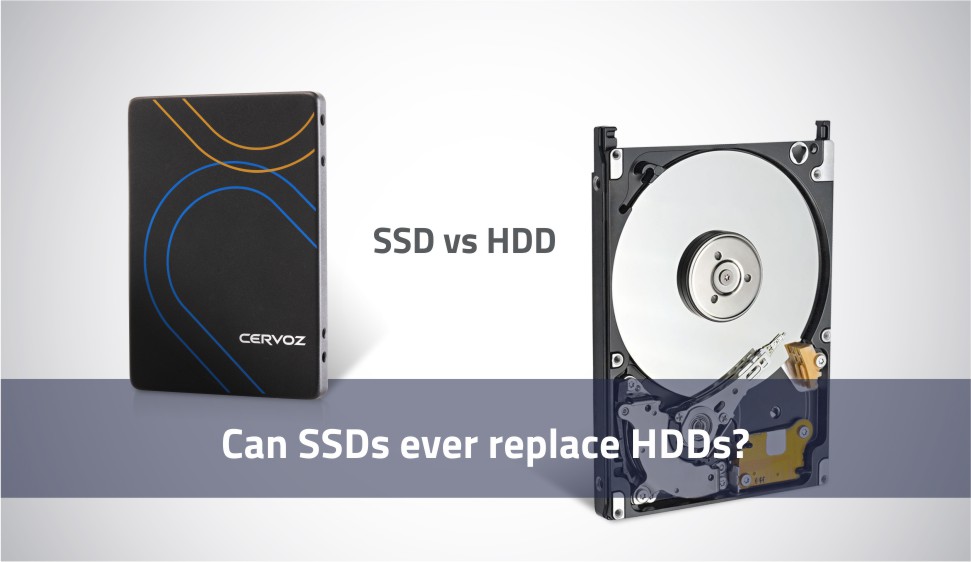- Company
- Press Center
- SSD vs HDD
BLOG
2021.09.15
SSD vs HDD
SHARE

A lot has been written comparing solid state drives (SSDs) and hard disk drives (HDDs). Both have their pros and cons, and even if forced to choose, no one can really say one is better than the other for every application.
As the newer storage device, an SSD differs from an HDD primarily in how it stores data. Instead of using moving parts to store and access data, SSDs use memory technology in the form of chips, also known as NAND Flash.
This difference (i.e. the lack of physical moving parts) is what gives SSDs the edge when it comes to speed, form factor, and ruggedness. Compared to each other, the SSD can be anywhere from 4 times to 20 times faster than the HDD depending on the product. The SATA III SSD, one of the earlier SSDs, is nearly 4 times as fast in operational speed as the HDD, while the NVMe SSD (Gen 3 x 4), a newer model, is nearly 20 times faster.
As for form factor offerings, the SSD comes in a lot more shapes and sizes than the HDD. The SSD can come in a 2.5”, mSATA, M.2 2242, M.2 2280 and Half Slim version to name a few, while the HDD only comes in 2.5” and 3.5”.

Unfortunately, for all of the SSD’s advantages, its NAND Flash controller ICs are also more expensive, and as we have witnessed this past year with the global shortage, more difficult to produce. In other words, where HDDs have their advantage is in price and cost per capacity.
Even as SSDs have become cheaper, HDDs will always cost less per gigabyte. This is the main reason HDDs are not being phased out of the market anytime soon. In fact, the trend now is to adopt a hybrid approach, using both SSDs and HDDs for different parts of the application system.
For instance, we can use SSD’s strengths for storing an operating system. The SSD’s speed will shorten booting time and make accessing data faster. Meanwhile, we can use the HDD and its cost-effectiveness for storing large volumes of information that a business may need to archive for recordkeeping.
While both SSDs and HDDs are storage solutions, it might be more helpful to look at them as different storage tools. Based on your business needs, you can mix and match the different SSDs and HDDs on the market to achieve the most optimal set of solutions.
Even as SSDs have become cheaper, HDDs will always cost less per gigabyte. This is the main reason HDDs are not being phased out of the market anytime soon. In fact, the trend now is to adopt a hybrid approach, using both SSDs and HDDs for different parts of the application system.
For instance, we can use SSD’s strengths for storing an operating system. The SSD’s speed will shorten booting time and make accessing data faster. Meanwhile, we can use the HDD and its cost-effectiveness for storing large volumes of information that a business may need to archive for recordkeeping.
While both SSDs and HDDs are storage solutions, it might be more helpful to look at them as different storage tools. Based on your business needs, you can mix and match the different SSDs and HDDs on the market to achieve the most optimal set of solutions.


